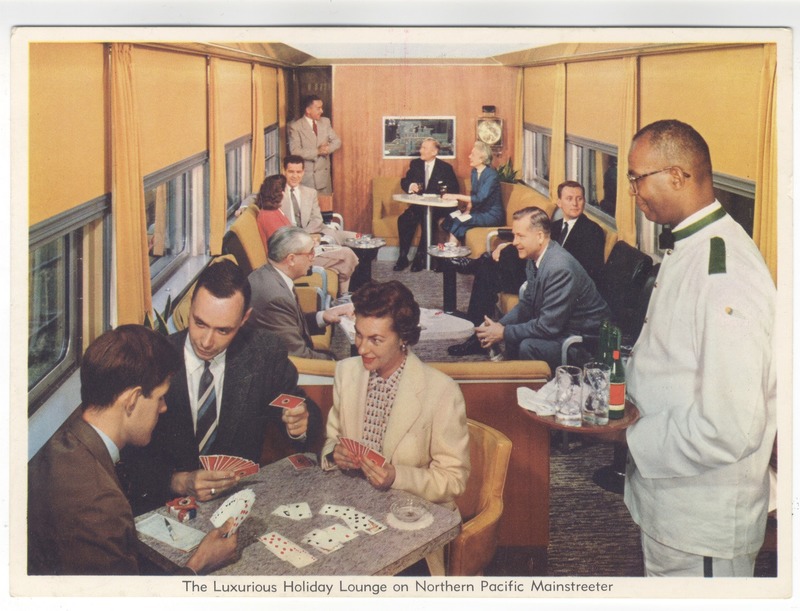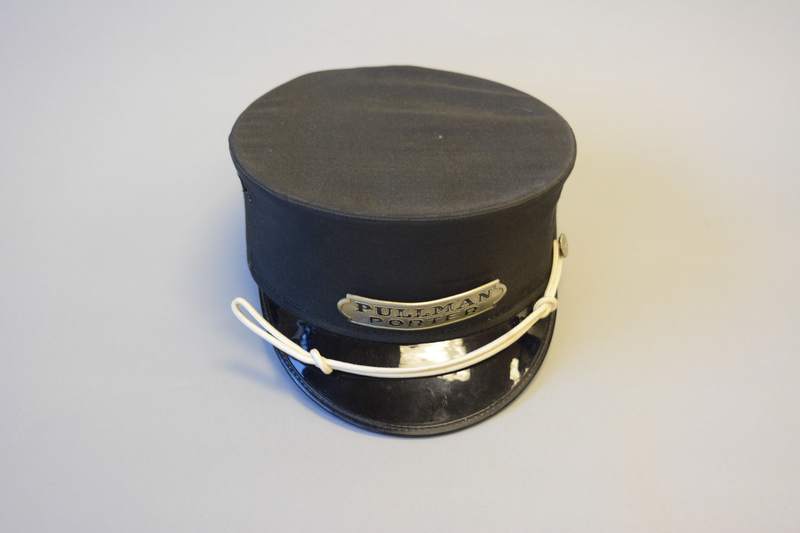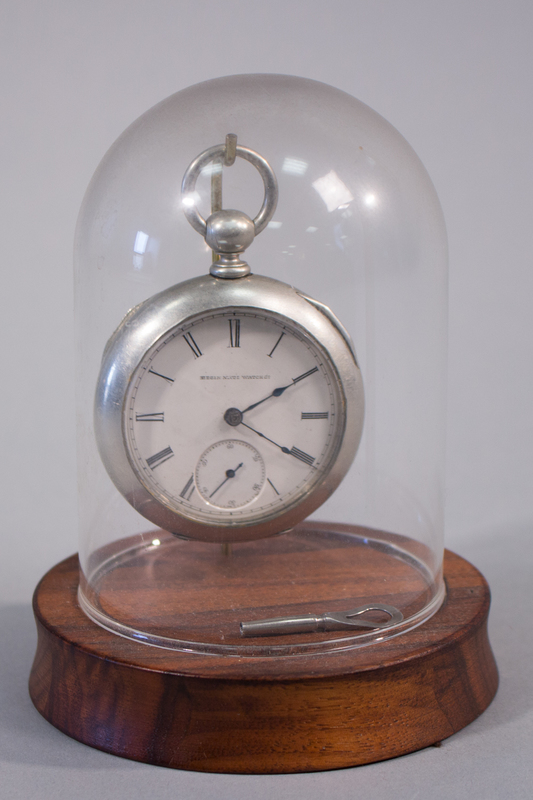They've Been Working On The Railroad
The railroad provided many men of Rondo with stable employment and a connected level of prestige. African-American men worked as porters, stewards and waiters for these companies. They not only received pay from the railroad company, but also tips. In a community where many families lived in some degree of poverty, these two sources of money related to the railroad provided an enviable level of stability and financial well-being. According to David Vassar Taylor, the railroad became a major employer of African-American men in the 1880s and continued to hire them through the mid 20th century. Two primary sources on growing up in Rondo, Evelyn Fairbanks’ The Days of Rondo and an oral history from Debbie Montgomery in Voices of Rondo, recount family members who worked for the railroad and help to show the prevalence of the profession. Though the jobs of stewards and Redcaps were not particularly high in the hierarchy of the railroad, in Rondo they held a position with large amounts of respect. The artifacts brought to the two Rondo History Harvests that related to the railroad, which include a postcard from the Northern Pacific Railroad, a Pullman Porter Hat, and a watch given to a Rondo resident by the rail company, and the pride with which they are spoken of, demonstrate the respect and prestige associated with working for the railroad, thereby disrupting narratives of Rondo residents as lacking economic success.
The postcard “Luxurious Holiday Lounge on Northern Pacific Mainstreeter,” shows the new luxury car of the Northern Pacific Railroad full of white people playing cards and having drinks while being served by a single black man, Rondo resident Lucius Archie Anderson. According to an interview with Anderson’s son, his father worked for the railroad his whole life. He rose among the ranks of waiters to be chosen as the attendant of the first holiday lounge car, a position with greater acclaim than that of a regular waiter. The way that the younger Anderson saved the postcard and speaks about it with such pride evidences the esteem connected to railroad labor and in particular to Lucius Anderson being chosen as the first attendant for this car out of hundreds of waiters. His success and the recognition accorded to him by the rail company are not pieces of the story commonly told about Rondo, therefore they help to create the new narrative of economic empowerment within the community.
Further evidence of the regard with which Rondo residents view their relatives’ work on the railroad is found in both a Pullman Porter Hat worn by a Rondo man and saved by his family and the watch given to him by the railroad. The Pullman porter hat was brought to the 2017 Rondo History Harvest by Taffy Jones and her mother Jewell. The hat was worn by Jones’ great-grandfather who worked for the Great Northern Railroad as a porter and whose son, Jone’s grandfather, also worked worked for the railroad and became executive assistant to a railroad owner. The women describe that “the men in our family worked on the train, and this [hat] is just a reminder of where they started, and where we’ve come from.” The presence of the hat in the family for four generations and its use as a reminder of their roots clearly implies a level of pride in their family member’s work, or at least no desire to be rid of the memories of the railroad.
At the 2016 Rondo History Harvest, a different member of the Jones family brought another railroad-related artifact, a pocket watch, that illustrates the social standing that railroad work provided men in the Rondo community. Seitu Jones brought in a Pocket Watch that was given to his grandfather, Joseph Robert Jones, the same man mentioned above, by the railroad company for whom he was a Pullman porter. Jones describes that “the higher up you were, the more important you were, you had to have a watch” (1) which meant that because his grandfather was in one of these important roles he was given a watch by the company. Jones further explains that his grandfather always carried the watch and kept it in his pocket even after retirement. By continuing to carry the watch, Joseph Robert Jones had a link to his valued position on the railroad and was thus able to leverage that in his social standing in the community.
The men of Rondo who worked for the railroads may not have had the social capital of the doctors or lawyers of the community. However, thanks to their steady employment and added income from tips they still accrued a high level of prestige which is evident in the pride with which their relatives recount their service. This work and its connected respect is not always recognized in the main narratives put forth of Rondo. By acknowledging the status accrued by working on the railroad, these artifacts help construct a historical narrative that emphasizes the economic achievement of the men of Rondo.
1. Elgin National Watch Company, “Joseph Robert Jones's pocket watch,” Remembering Rondo | A History Harvest, accessed May 1, 2017, http://omeka.macalester.edu/rondo/items/show/15.


